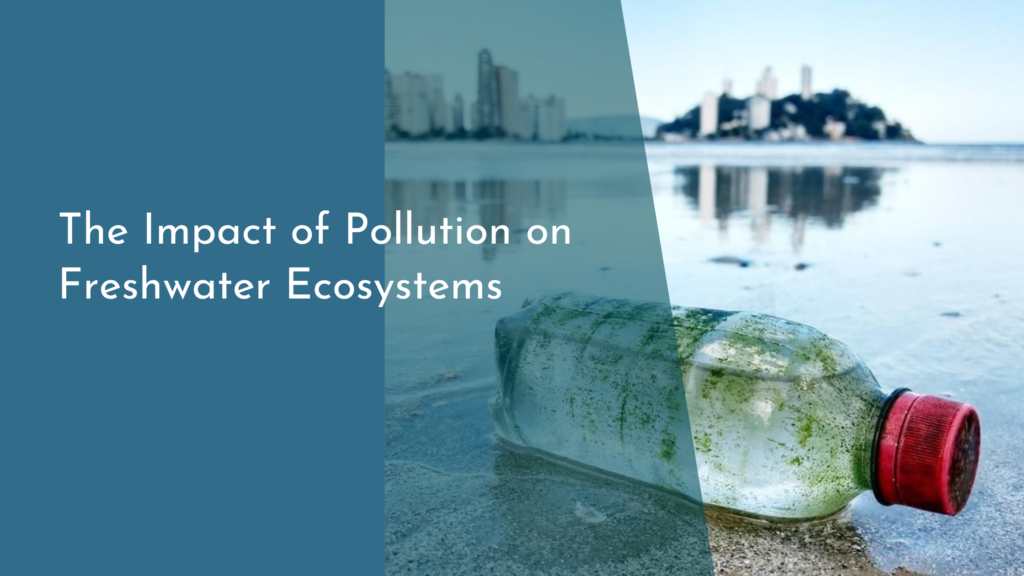Biofuel Production from Aquatic Plants
As the world grapples with the challenges of climate change and the need for sustainable energy sources, the quest for innovative biofuels has led to a remarkable frontier: aquatic plants. These versatile organisms, which thrive in freshwater and marine environments, possess unique characteristics that make them ideal candidates for biofuel production. From algae to water hyacinth, the potential for harnessing energy from these green marvels is immense, opening up a new chapter in the pursuit of renewable energy solutions.
In this article, we will explore the promising world of biofuel production from aquatic plants, uncovering their benefits, the science behind their energy transformation, and the exciting future prospects that these water wonders present. Join us as we dive into the depths of this fascinating field and discover how aquatic plants could play a significant role in fostering a greener, more sustainable planet.
Unlocking the Potential of Aquatic Plants for Biofuels
Aquatic plants, particularly microalgae and macroalgae, offer a plethora of opportunities for biofuel production. Unlike traditional terrestrial crops, these plants have the remarkable ability to grow in a variety of aquatic environments, including oceans, rivers, and lakes. This adaptability allows them to thrive in conditions unsuitable for conventional agriculture, reducing competition for land and resources. Furthermore, many aquatic plants can flourish in nutrient-rich wastewater, effectively helping to purify water while generating biomass for biofuels.
What makes aquatic plants even more intriguing is their high growth rates and biomass yield. Some species can double their mass in a matter of hours, making them incredibly efficient at capturing solar energy and converting it into organic matter. This rapid growth, coupled with their low input requirements, positions aquatic plants as a sustainable alternative to fossil fuels. By harnessing their potential, we can significantly reduce our carbon footprint and move toward a more sustainable energy landscape.
The Benefits of Sustainable Biofuel from Water Wonders
Sustainable biofuels derived from aquatic plants offer numerous environmental and economic benefits. First and foremost, they have a significantly lower carbon footprint compared to traditional fossil fuels. The cultivation of these plants not only absorbs carbon dioxide from the atmosphere, but also helps mitigate water pollution by utilizing nutrients that would otherwise contribute to harmful algal blooms. This dual-purpose approach not only fosters cleaner waterways but also contributes to healthier ecosystems.
In addition to environmental advantages, aquatic biofuels have the potential to stimulate local economies. By establishing biofuel production facilities in coastal and rural areas, communities can create jobs and enhance energy security. Furthermore, the innovative use of aquatic plants can lead to the development of new technologies and industries, positioning these regions at the forefront of the green energy revolution. As more investments are made in this sector, the economic prospects for aquatic biofuels continue to grow, providing a win-win solution for both people and the planet.
How Aquatic Plants Transform Sunlight into Energy
The process by which aquatic plants convert sunlight into energy is a fascinating phenomenon known as photosynthesis. During this process, chlorophyll-containing cells capture sunlight and use its energy to convert carbon dioxide and water into glucose and oxygen. In the case of microalgae, this process is incredibly efficient, with some species achieving photosynthetic efficiencies that far surpass terrestrial plants. The glucose produced can then be further processed into biofuels such as biodiesel, ethanol, or biogas.
Moreover, aquatic plants have unique adaptations that enhance their productivity. Many species can utilize different wavelengths of light, allowing them to thrive even in varying environmental conditions. Additionally, the ability to absorb nutrients directly from the water means they can access essential compounds that enhance biomass production. This remarkable adaptability ensures that aquatic plants can contribute to biofuel production in diverse ecosystems, from the depths of the ocean to freshwater lakes.
Future Prospects: Aquatic Biofuels for a Greener World
The future of biofuel production from aquatic plants appears bright and promising. Research in biotechnology and genetic engineering has the potential to unlock even greater yields and efficiencies. Scientists are investigating ways to optimize the growth conditions of these plants, enhance their lipid content for biofuel production, and develop strains that can thrive in extreme environments. This ongoing research could lead to groundbreaking advancements in renewable energy and contribute significantly to global energy needs.
As awareness of the importance of sustainable practices grows, the integration of aquatic biofuels into energy policies and strategies is becoming increasingly feasible. Governments and organizations worldwide are beginning to recognize the potential of these water wonders, paving the way for greater investment in research and development. By prioritizing aquatic biofuels, we can move toward a cleaner, greener future, harnessing the incredible power of nature to meet our energy demands while preserving the planet for generations to come.
In conclusion, the production of biofuels from aquatic plants represents a thrilling opportunity to revolutionize our energy landscape. Not only do these remarkable organisms provide a sustainable and efficient alternative to fossil fuels, but they also promote environmental health and economic growth. By unlocking the potential of aquatic plants, we can embark on a journey toward a greener world—one where energy is sourced responsibly, ecosystems are preserved, and communities thrive. As we continue to explore this field, the possibilities are as vast as the waters themselves, promising a brighter and more sustainable future for all.


